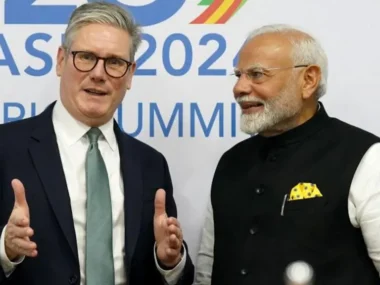The total value of mergers and acquisitions transactions fell to slightly over $265 billion, down from $395 million.
Takeover and tie-up dealmaking in the United Kingdom fell by a third this year, reaching its lowest level since 2009, as increasing interest rates and fears about the UK’s economic prospects dampened purchasers’ appetites.
According to data provided by the London Stock Exchange Group’s Deals Intelligence division, the overall value of mergers and acquisitions involving UK corporations would fall by 33% to $265 billion (£207 billion) by 2023.
This is down from $395 million a year ago and is a considerable dip from the post-lockdown bounce that drove UK transaction prices to $658 billion in 2021.
The dip includes double-digit declines in both domestic and cross-border transactions, which are down 37% and 49%, respectively, with both international and domestic buyers put off by the UK’s economic outlook. While global dealmaking slowed this year, it was significantly less dramatic than in the UK, falling by only 17% to $2.9 trillion.
This is despite an increase in the number of private equity firms buying UK businesses, with 915 acquisitions completed, the most since records began in 1980. However, the total value of such transactions was $41 billion. This is a 41% decrease from 2022, when private equity takeovers were worth $70.5 billion.
UK firms were the subject of $120 billion in merger and acquisition deals, a 45% decrease from 2022, while outbound deals – where the UK bought businesses abroad – increased 12% to $104 billion.
Overall, the number of UK deals declined by over a fifth, to around 5,500, with the largest being EQT’s $6.1 billion takeover of Dechra medicines, a UK veterinary medicines firm.
According to Lucille Jones, senior manager at LSEG Deals Intelligence, the UK’s dealmaking downturn is partly attributable to economic concerns, with poor expectations driving away potential purchasers. “Steeply rising interest rates and a concerning outlook for the UK economy, combined with stricter antitrust enforcement and ongoing geopolitical tensions curbed the appetite for dealmaking in 2023,” she said.
Economic growth in the United Kingdom has practically stalled, owing in part to persistent inflation that began the year at more than 10%. It has compelled the Bank of England to raise interest rates to 5.25% through the summer, impacting business and household spending.
Gross domestic product (GDP) decreased by 0.1% in the third quarter, lower than previously estimated, while second-quarter data were revised down to zero from a previous estimate of 0.2%.
After two consecutive quarters of GDP decline, an economy is deemed to be in a technical recession, and further contraction in the fourth quarter would place the UK in that category.
Businesses have also expressed alarm about the UK’s competition regulator’s more harsh posture. Attempts to stymie negotiations between US businesses such as Microsoft and Call of Duty video game publisher Activision Blizzard, as well as software developers Adobe and Figma, have resulted in claims that the UK is “closed for business.”
However, there may be cause for optimism for UK dealmaking, which ended the year stronger than it began. While the value of agreements announced in the first quarter of the year fell to the lowest quarterly level since the end of 2009, the final three months of the year saw the greatest quarterly total since mid-2022.
“With inflation coming down and rates normalising, it could give CEOs and boards a little more confidence with which to plan their moves in 2024,” Jones said in a statement.











